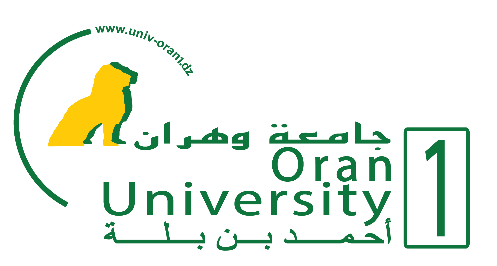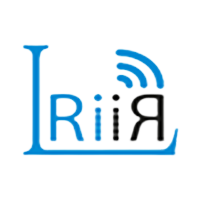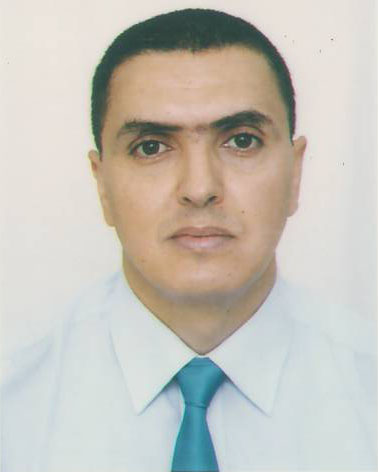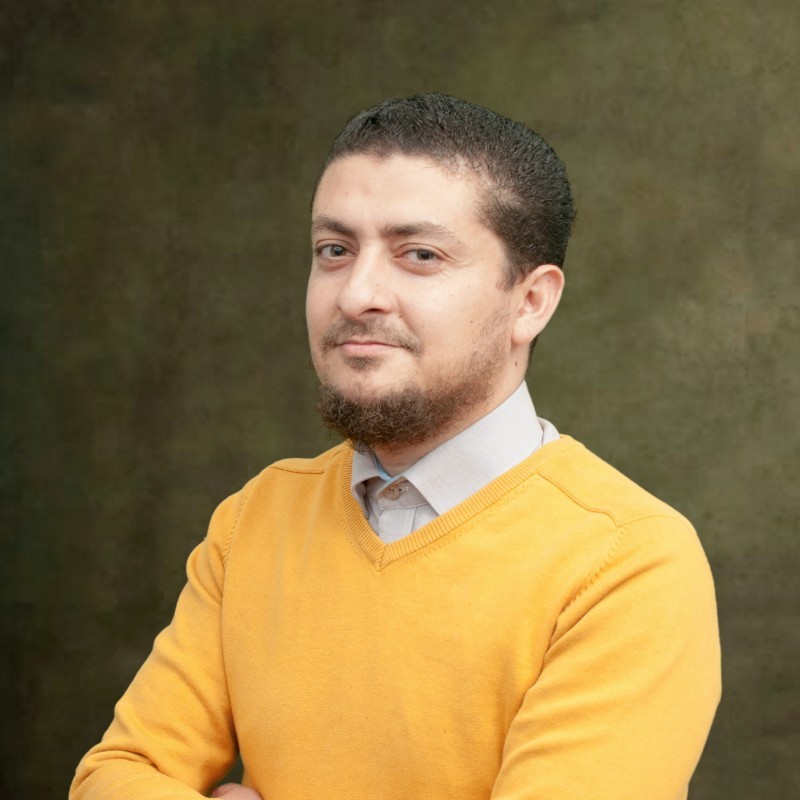
Faculté des Sciences Exactes et Appliquées Département Informatique
Second Edition of the Study Days on Advanced technologies of AI and its societal and industrial applications
Laboratoire en Informatique Industrielle et Réseaux (RIIR)





Under the high patronage of the Rector of Oran1 University
The Laboratory of Industrial Computing and Networks (RIIR)
Within the scope of the doctoral training program supported by our RIIR laboratory
Organizes
Second Edition of the Study Days on Advances in AI and its Societal and Industrial Applications, will be held on January 29th and 30th, 2025 at Oran1 University
——-
Seconde Edition des Journées d’études sur les nouvelles technologies de l’IA et ses applications sociétales et industrielles
29 et 30 Janvier 2025, Université ORAN1
Organizing Committee
Pr AMINE Abdelmalek
Pr KECHAR Bouabdellah
Pr ABDI Mustapha Kamel
Pr SEKHRI Larbi
Pr GHOMARI Abdelghani
Pr BOURENANE Malika
Dr BIDAI Zahia
Dr KHELFI Nadjia
Dr BOUSMAHA Kheira Zineb
Dr. MAMI Mohamed Amine
Dr DAHANE Amine
Dr BENZERBADJ Ali
Dr BENGUEDDACH Asmaa
Steering Committee
Pr AMINE Abdelmalek
Pr KECHAR Bouabdellah
Pr ABDI Mustapha Kamel
Pr HAFFAF Hafid
Pr KHELFI Mohamed Fayçal
Pr GHOMARI Abdelghani
Pr BOURENANE Malika
Pr SEKHRI Larbi
Dr BIDAI Zahia
Dr BOUSMAHA Kheira Zineb
Dr KHELFI Nadjia
Dr MAMI Mohamed Amine
Objectives
Enable our teachers, PhD and Master students to:
- Learn from constantly updated experts about new technologies and innovations in Artificial Intelligence (AI).
- Participate in a practical training session with the most popular Artificial Intelligence tools.
- Familiarize yourself with the functionalities and strengths of AI and learn how to integrate them effectively into our educational and scientific research missions.
- Understand the advanced topics of AI/ML/DL.
- Apply case studies through focused workshops.
- Accelerate the deployment of AI in our research laboratory.
- The pedagogical aim of this event is to give our students a capacity for reflection and a critical sense on the subject of Artificial Intelligence; while enabling them to understand the impact they will have in terms of responsibilities as future Masters / engineers in the field of AI and Machine Learning.
Program
Proposed topics for this second edition:
- Self-Supervised Learning and Contrastive Learning
- Deep Learning Advancements (Generative IA, Explainable IA)
- Foundations of Efficient Machine Learning
- Learning from Scarce and limited Data
- Evolution of Generative Models
- Machine Learning Basics (Workshop)
- Fundamentals of Deep Learning (Workshop)
Day 1 : Wednesday, January 29, 2025
Morning
08h30 – 09h00 : Welcoming participants
09h00 – 09h30 : Opening speech and presentation of the program
09h30 – 10h30 : Plenary lecture (Auditorium)
Title : “Artificial Intelligence in Life Sciences“,
Speaker: Dr Brahimi Mohamed
10h30 – 11h00 : Coffee break
11h00 – 12h00 : Plenary lecture (in virtual)
Title 1 :” Generative Models: From Boltzmann Machines to Diffusion Models and Their Emerging Applications in AI “
Title 2 : “Self-Supervised Learning and Contrastive Learning: Leveraging Unlabeled Data for Robust Feature Learning”
Speaker : Pr Abdelouahab MOUSSAOUI
12h00 – 12h30 : Discussions
12H30 – 14h00 : Lunch
Afternoon
14h00 – 17h30
Workshop “Machine Learning Fundamentals”, Speaker: Dr. Belkacem Sami,
in Library of the faculty FSEA
Day 2 : Thursday, January 30, 2025
Morning
08h30 – 12h00
Workshop “Deep Learning Fundamentals – Part 1”, Speaker: Dr. Mohamed Brahimi
in Library of the faculty FSEA
Afternoon
13h00 – 17h30
Workshop “Deep Learning Fundamentals – Part 2”, Speaker: Dr. Mohamed Brahimi
in Library of the faculty FSEA
Speakers

Pr MOUSSAOUI Abdelouahab
University of Setif (Algeria)
Biography
Abdelouahab Moussaoui is a teacher/researcher at Ferhat Abbas University in Sétif, Algeria, where he held the position of professor in computer science in the artificial intelligence specialty. He obtained his engineering degree in computer science in 1991 from the Department of Computer Science at the University of Science and Technology of Houari Boumediene (USTHB), Algeria. He also obtained a master’s degree in space engineering in 1992 from the University of Science and Technology of Oran (USTO). He obtained a master’s degree in artificial intelligence in 1995 from the University of Sidi Bel abbès, Algeria, and a PhD in artificial intelligence & medical imaging from Ferhat Abbas University, Algeria, in 2005, where he obtained the status of full professor in computer science. He is referenced in several renowned international journals such as Springer and Elsevier. His research interests are in the fields of machine and deep learning, clustering algorithms, and multivariate image classification applications in the biological and medical fields. He has published a considerable number of scientific articles, participated in numerous seminars and scientific conferences as a reviewer, and supervised numerous doctoral theses in the field of supervised and unsupervised deep learning applied in the biomedical field (medicine and biology). He has worked for a long time on pattern recognition algorithms, complex data mining, physiological signal analysis, and bioinformatics. In his current work, Professor Abdelouahab Moussaoui is interested in self-supervised learning techniques, representation learning, as well as semantic image segmentation techniques through visualization and interpretability techniques of convolutional neural networks in Deep Learning (CAM, Grad-CAM, CBAM, etc.). He currently chairs a national commission for the reflection and development of a national artificial intelligence program that will be taught as a learning subject for new doctoral students. Professor Moussaoui has also applied deep learning techniques in the medical field, notably for colorectal cancer, multiple sclerosis, and Alzheimer’s disease. His work in bioinformatics has also been used for personalized medicine and biology, including the detection of plant diseases. This research, referenced and recognized internationally, has earned him several prestigious appointments. In addition to his theoretical and applied contributions, his research includes cutting-edge techniques such as reinforcement learning, federated learning, adversarial learning, and generative models applied to medicine and biology. He explores how these methods can improve diagnostics, personalized treatments, and the of complex biological processes. His innovative work in these areas has earned him increased recognition in the international scientific community.
Title of the Talk 1
“Generative Models: From Boltzmann Machines to Diffusion Models and Their Emerging Applications in AI”
Keywords
Hopfield Networks, Boltzmann Machines, generative models, diffusion models, GANs, VAEs, image synthesis, AI applications.
Abstract
The plenary titled Generative Models: From Boltzmann Machines to Diffusion Models and Their Emerging Applications in AI discussed the progression of generative models and their transformative role in artificial intelligence. Beginning with Hopfield Networks as a precursor, the session explored their influence on later models such as Boltzmann Machines and Restricted Boltzmann Machines. It then examined advancements like Generative Adversarial Networks (GANs), Variational Autoencoders (VAEs), and the cutting-edge diffusion models.
Diffusion models were highlighted for their ability to produce highly realistic data in applications such as image synthesis, text generation, and audio creation. Real-world uses in creative industries, healthcare, and scientific simulations underscored the growing impact of these models.
Title of the Talk 2
“Self-Supervised Learning and Contrastive Learning: Leveraging Unlabeled Data for Robust Feature Learning”
Keywords
Self-supervised learning, contrastive learning, unlabeled data, pretext tasks, pseudo-labels, positive pairs, negative pairs.
Abstract
The plenary explored advances in self-supervised learning and contrastive learning, two innovative approaches for utilizing unlabeled data. Self-supervised learning creates pretext tasks to generate pseudo-labels directly from the data, enabling supervised learning without manual annotations. Contrastive learning, on the other hand, trains models by maximizing similarity between positive pairs (similar examples) and minimizing it for negative pairs (dissimilar examples).
These techniques have demonstrated the ability to learn robust feature representations that generalize well across tasks. Notable frameworks like SimCLR and MoCo were highlighted for their state-of-the-art results in vision tasks. The session emphasized the potential of these methods to reduce reliance on costly labeled datasets and their adaptability to diverse domains.
Dr BELKACEM Sami (Assistant Professor)
National School of Artificial Intelligence – ENSIA – (Algeria)
Biography
Sami Belkacem holds a PhD in Artificial Intelligence from USTHB University (Algeria) and is currently a member of the Computer Systems Laboratory. He serves as an Assistant Professor at the National School of Artificial Intelligence (Algeria).
Dr. Belkacem earned his Bachelor’s degree in Computer Science in 2013, followed by a Master’s degree in Artificial Intelligence in 2015, and a PhD in Artificial Intelligence in 2021, all from USTHB University. He completed doctoral internships at the University of Algarve (Portugal) and the University of Lyon 2(France).
Dr. Belkacem has published numerous papers in international conferences, workshops, and journals. His research interests include Social Network Analysis and Mining, Recommender Systems, and Machine Learning. Recently, his work has focused on ranking news feed updates on social media.
Title of the Talk (Workshop)
“Machine Learning Basics”
Keywords
Data Processing, Data Visualization, Feature Engineering, Machine Learning
Abstract
This two-day workshop focuses on data processing, visualization, and machine learning techniques to equip participants with essential skills for data-driven decision-making.
-begins with data preparation, covering data collection, cleaning, and preprocessing methods. It then explores data visualization and analysis to uncover patterns and relationships, followed by feature engineering techniques to select and transform relevant variables.
–delves into machine learning approaches, including classification, regression, and clustering. Key topics include model selection, training, hyperparameter tuning, and performance evaluation using metrics such as accuracy, precision, and recall.
Participants will use Python 3 and leverage platforms like Anaconda, Jupyter Notebook, and Google Colab for hands-on practice. The workshop requires mathematical foundations, Python programming, and data structure basics. It also introduces essential Python libraries: NumPy and Pandas for data preprocessing, Matplotlib and Seaborn for visualization, and Scikit-learn for implementing machine learning algorithms.
This practical and comprehensive training is ideal for students and professionals seeking to enhance their analytical skills.


Dr BRAHIMI Mohamed (Assistant Professor)
National School of Artificial Intelligence – ENSIA – (Algeria)
Biography
Researcher in Machine Learning, I am interested in ML applications in Agriculture, Chemistry, and Engineering. I am a lecturer at the School of Artificial Intelligence in Algiers. I was certified for several Nvidia workshops, which allowed me to train more than 300 participants and certify more than 150 of them. I am very interested recently in how to implement machine learning and deep learning projects in production.
I’m interested in machine learning theory and its application in real life (Agriculture, Chemistry, Engineering…). Recently, I have worked in deep learning and especially convolutional neural networks (CNN) for computer vision. For example, I have applied CNN for plant disease classification and human action recognition. But, I don’t limit myself to these applications, and I can apply CNN in any domain. I’m working on the interpretation of CNN results using visualization methods to make it more useful in many critical applications.
Title of the Talk (Workshop)
“Fundamentals of Deep Learning”
Keywords
Hopfield Networks, Boltzmann Machines, generative models, diffusion models, GANs, VAEs, image synthesis, AI applications.
Abstract
Businesses worldwide are using artificial intelligence (AI) to solve their greatest challenges. Healthcare professionals use AI to enable more accurate, faster diagnoses in patients. Retail businesses use it to offer personalized customer shopping experiences. Automakers use it to make personal vehicles, shared mobility, and delivery services safer and more efficient. Deep learning is a powerful AI approach that uses multi-layered artificial neural networks to deliver state-of-the-art accuracy in tasks such as object detection, speech recognition, and language translation. Using deep learning, computers can learn and recognize patterns from data that are considered too complex or subtle for expert-written software.
In this workshop, you’ll learn how deep learning works through hands-on exercises in computer vision and natural language processing. You’ll train deep learning models from scratch, learning tools and tricks to achieve highly accurate results. You’ll also learn to leverage freely available, state-of-the-art pre-trained models to save time and get your deep learning application up and running quickly.
Learning Objectives
By participating in this workshop, you’ll:
- Learn the fundamental techniques and tools required to train a deep learning model
- Gain experience with common deep learning data types and model architectures
- Enhance datasets through data augmentation to improve model accuracy
- Leverage transfer learning between models to achieve efficient results with less data and computation
- Build confidence to take on your own project with a modern deep learning framework
List of Workshop participants
– OUR TEACHERS
– OUR PhD Students (DOCTRANTS)
– OUR MASTER STUDENTS
– OTHERS
(to be announced soon)
Contact
Email: kechar.bouabdellah@univ-oran1.dz
Event website: https://www.univ-oran1.dz/
RIIR laboratory website:https://labo-riir.com/
Location of the event : Auditorium Talahit – Campus Taleb Salim Mourad